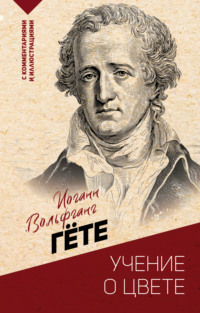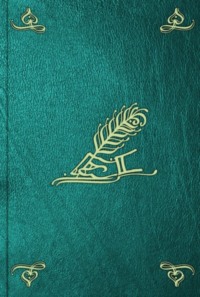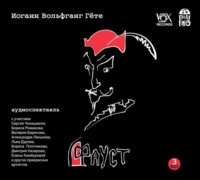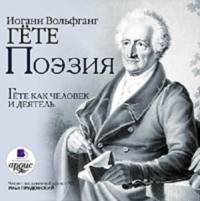 полная версия
полная версияLetters from Switzerland and Travels in Italy
I observe that in my notes I make very little mention of human beings. Amid these grand objects of nature, they are but little worthy of notice, especially where they do but come and go. I doubt not but that on a longer stay we should meet with many worthy and interesting people. One fact I think I have everywhere observed; the farther one moves from the highroad and the busy marts of men, the more people are shut in by the mountains, isolated and confined to the simplest wants of life, the more they draw their maintenance from simple, humble, and unchangeable pursuits: so much the better, the more obliging, the more friendly, unselfish, and hospitable are they.
Leukerbad, Nov. 10, 1779.
We are getting ready by candle-light, in order to descend the mountain again as soon as day breaks. I have had rather a restless night. Scarcely had I got into bed before I felt as if I was attacked all over with the nettle rash. I soon found, however, that it was a swarm of crawling insects, who, ravenous of blood, had fallen upon the new comer. These insects breed in great numbers in these wooden houses. The night appeared to me extremely long, and I was heartily glad when in the morning a light was brought in.
Leuk., about 10 o'clock.
We have not much time to spare; however, before we set out, I will give you an account of the remarkable breaking up of our company, which has here taken place, and also of the cause of it. We set out from Leukerbad with daybreak this morning, and had to make our way over the meadows through the fresh and slippery snow. We soon came to Inden, where, leaving above us on our right the precipitous road which we came down yesterday, we descended to the meadow lands along the ravine which now lay on our left. It is extremely wild and overgrown with trees, but a very tolerable road runs down into it. Through the clefts in the rock the water which comes down from Leukerbad has its outlets into the Valais. High up on the side of the hill, which yesterday we descended, we saw an aqueduct skilfully cut out of the rock, by which a little stream is conducted from the mountain, then through a hollow into a neighbouring village.
Leuk
Next we had to ascend a steep height, from which we soon saw the open country of Valais, with the dirty town of Valais lying beneath us. These little towns are mostly stuck on the hill sides; the roofs inelegantly covered with coarsely split planks, which within a year become black and overgrown with moss; and when you enter them, you are at once disgusted, for everything is dirty; want and hardship are everywhere apparent among these highly privileged and free burghers.
We found here our friend, who brought the unfavourable report that it was beginning to be injudicious to proceed further with the horses. The stables were everywhere small and narrow, being built only for mules or sumpter horses; oats too were rarely to be procured; indeed he was told that higher up among the mountains there were none to be had. Accordingly a council was held. Our friend with the horses was to descend the Valais and go by Bee, Bevay, Lausanne, Freiburg, and Berne, to Lucerne, while the Count and I pursued our course up the Valais, and endeavoured to penetrate to Mount Gotthard, and then through the Canton of Uri, and by the lake of the Forest Towns, likewise make for Lucerne. In these parts you may anywhere procure mules, which are better suited to these roads than horses, and to go on foot invariably proves the most agreeable in the end. Our friend is gone, and our portmanteaus packed on the back of a mule, and so we are now ready to set off and make our way on foot to Brieg. The sky has a motley appearance, still I hope that the good luck which has hitherto attended us, and attracted us to this distant spot, will not abandon us at the very point where we have the most need of it.
Brieg, Nov. 10, 1779.
Evening.
Of to-day's expedition I have little to tell you, unless you would like to be entertained with a long circumstantial account of the weather. About 11 o'clock we set off from Leuk., in company with a Suabian butcher's boy, who had run away hither, and had found a place where he served somewhat in the capacity of Hanswurst (Jack-Pudding), and with our luggage packed on the back of a mule, which its master was driving before him. Behind us, as far as the eye could reach, thick snow clouds, which came driving up the lowlands, covered everything. It had really a threatening aspect. Without expressing my fears I felt anxious lest, even though right before us it looked as clear as it could do in the land of Goshen, the clouds might nevertheless overtake us, and here, perhaps in the territory of the Valais, shut in on both sides by mountains, we might be covered with the clouds, and in one night snowed up. Thus whispered alarm which got possession almost entirely of one ear; at the other good courage was speaking in a confident tone, and reproving me for want of faith, kept reminding me of the past, and called my attention to the phenomena of the atmosphere before us. Our road went continually on towards the fine weather. Up the Rhone all was clear, and as a strong west wind kept driving the clouds behind us, it was little likely that they would reach us.
The following was the cause of this. Into the valley of Valais there are, as I have so often remarked already, many ravines running down from the neighbouring mountain-chains, which fall into it like little brooks into a great stream, as indeed all their waters flow off into the Rhone. Out of each of these openings rushes a current of wind, which has been forming in the inner valleys and nooks of the rocks. When now the principal drift of the clouds up the valley reaches one of these ravines, the current of the wind does not allow the clouds to pass, but contends with them, and with the wind which is driving them, and thus detains them, and disputes with them for whole hours the passage up the valley. This conflict we often witnessed, and when we believed we should surely be overtaken by the clouds, an obstacle of this kind would again arise, and after we had gone a good league, we found they had scarcely stirred from the spot.
Brieg
Towards evening the sky was uncommonly beautiful. As we arrived at Brieg, the clouds got there almost as soon as we did; however, as the sun had set, and a driving east wind blew against them, they were obliged to come to a halt, and formed a huge crescent from mountain to mountain across the valley. The cold air had greatly condensed them, and where their edge stood out against the blue sky, it presented to the eye many beautiful, light, and elegant forms. It was quite clear that they were heavy with snow; however, the fresh air seemed to us to promise that much would not fall during the night.
Here we are in a very comfortable inn, and what greatly tends to make us contented, we have found a roomy chamber with a stove in it, so that we can sit by the fire-side and take counsel together as to our future travels. Through Brieg runs the usual road to Italy over the Simplon; should we, therefore, give up our plan of going over the Furca to Mont S. Gothard, we shall go with hired horses and mules to Domo d'Ossula, Margozro, pass up Lago Maggiore, and then to Bellinzona, and then on to S. Gotthard, and over Airolo to the monastery of the Capuchins. This road is passable all the winter through, and is good travelling for horses; however, to our minds it is not very inviting, especially as it was not in our original plan, and will not bring us to Lucerne till five days after our friend. We wish rather to see the whole of the Valais up to its extreme limit, whither we hope to come by to-morrow evening, and, if fortune favours, we shall be sitting by about the same time next day in Realp, in the canton of Uri, which is on Mont Gotthard, and very near to its highest summit. If we then find it impossible to cross the Furca, the road back to this spot will still be open to us, and then we can take of necessity the route which of free choice we are disinclined to.
You can well believe that I have here closely examined the people, whether they believe that the passage over the Furca is open, for that is the one idea with which I rise up, and lie down to sleep, and occupy myself all day long. Hitherto our route may be compared to a march to meet an enemy, and now it is as if we were approaching to the spot where he has entrenched himself, and we must give him battle. Besides our mule two horses are ordered to be ready by the evening.
Munster, Nov. 11, 1779.
Evening, 6 o'clock.
Again we have had a pleasant and prosperous day. This morning as we set out early and in good time from Brieg our host, when we were already on the road said, "If the mountain (so they call the Furca here,) should prove too fearful, you can easily come back and take another route." With our two horses and mule we soon came upon some pleasant meadows, where the valley becomes so narrow that it is scarcely some gun-shots wide. Here are some beautiful pasture lands, on which stand large trees, while pieces of rock lie scattered about which have rolled down from the neighbouring mountains. The valley gradually grows narrower, and the traveller is forced to ascend along the side of the mountain, having the while the Rhone below him in a rugged ravine on his left. Above him, however, the land is beautifully spread out; on the variously undulating hills are verdant and rich meadows and pretty hamlets, which, with their dark-brown wooden houses, peep out prettily from among the snow. We travelled a good deal on foot, and we did so in turns to accommodate one another. For although riding is safe enough, still it excites one's alarm to see another riding before you along so narrow a track, and on so weak an animal, and just on the brink of so rugged a precipice; and as too there are no cattle to be seen on the meadows, (for the people here shut them all up in sheds at this season,) such a region looks lonely, and the thought that one is continually being hemmed in closer and closer by the vast mountains, fills the imagination with sombre and disagreeable fancies, enough to make you fall from your seat, if you are not very firm in the saddle. Man is never perfectly master of himself. As he lives in utter ignorance of the future, as indeed what the next moment may bring forth is hidden from him, consequently, when anything unusual falls beneath his notice, he has often to contend with involuntary sensations, forebodings, and dream-like fancies, at which shortly afterwards he may laugh outright, but which at the decisive moment are often extremely oppressive.
The legend of S. Alexis
In our noonday quarters we met with some amusement. We had taken up our lodgings with a woman in whose house everything looked neat and orderly. Her room, after the fashion of the country, was wainscotted, the beds ornamented with carving; the cupboards, tables, and all the other little repositories which were fastened against the walls or to the corners, had pretty ornaments of turner's work or carving. From the portraits which hung around the room, it was easy to see that several members of the family had devoted themselves to the clerical profession. We also observed a collection of bound books over the door, which we took to be the endowment of one of these reverend personages. We took down the Legends of the Saints, and read it while our meal was preparing. On one occasion of our hostess entering the room, she asked us if we had ever read the history of S. Alexis? We said no, and took no further notice of her question, but went on reading the chapter we each had begun. When, however, we had sat down to table, she placed herself by our sides, and began again to talk of S. Alexis. We asked her whether he was the patron saint of herself, or of her family; which she denied, affirming at the same time, however, that this saintly person had undergone so much for the love of God, that his history always affected her more than any other's. When she saw that we knew nothing about him, she began to narrate to us his history. "S. Alexis," she said, "was the son of noble, rich, and God-fearing parents in Rome, and in the practice of good works he delighted to follow their example, for they did extraordinary good to the poor. All this, however, did not appear enough to Alexis; but secretly in his own heart he devoted himself entirely to God's service, and took a vow to Christ of perpetual virginity. When, then, in the course of time, his parents wished to marry him to a lovely and amiable maiden, he did not oppose their will. When, however, the marriage ceremony was concluded, instead of retiring to his bed in the nuptial chamber, he went on board a vessel which he found ready to sail, and with it passed over to Asia. Here he assumed the garb of a wretched mendicant, and became thereby so thoroughly disguised that the servants of his father who had been sent after him failed to recognise him. Here he posted himself near the door of the principal church, invariably attending the divine services, and supporting himself on the alms of the faithful. After two or three years various miracles took place, betokening the special favour of the Almighty. The bishop heard a voice in the church, bidding him to summon into the sacred temple that man whose prayer was most acceptable to God, and to keep him by his side while he celebrated divine worship. As the bishop did not at once know who could be meant, the voice went on to point out to him the beggar, whom, to the great astonishment of the people, he immediately fetched into the church. The saintly Alexis, embarrassed by having the attention of the people directed towards himself, quietly and silently departed thence, also on ship-board, intending to proceed still further in foreign lands. But by a tempest and other circumstances he was compelled to land in Italy. The saint seeing in all this the finger of God, was rejoiced to meet with an opportunity of exercising self-denial in the highest degree. He therefore set off direct for his native town, and placed himself as a beggar at the door of his parents' house. With their usual pious benevolence did they receive him, and commanded one of their servants to furnish him with lodging in the castle and with all necessary sustenance. This servant, annoyed at the trouble he was put to, and displeased with his master's benevolence, assigned to this seeming beggar a miserable hole under some stone steps, where he threw to him, as to a dog, a sorry pittance of food. The saint instead of suffering himself to be vexed thereat, first of all thanked God sincerely for it in his heart, and not only bore with patient meekness all this which he might easily have altered, but with incredible and superhuman fortitude, endured to witness the lasting grief of his parents and his wife for his absence. For he heard his much-loved parents and his beautiful spouse invoke his name a hundred times a day, and pray for his return, and he saw them wasting their days in sorrow for his supposed absence." At this passage of her narrative our good hostess could not refrain her tears, while her two daughters, who during the story had crept close to her side, kept steadily looking up in their mother's face. "But," she continued, "great was the reward which the Almighty bestowed on his constancy, giving him, at his death, the greatest possible proofs of his favour in the eyes of the faithful. For after living several years in this state, daily frequenting the service of God with the most fervent zeal, he at last fell sick, without any particular heed being given to his condition by any one. One morning shortly after this, while the pope was himself celebrating high mass, in presence of the emperor and all the nobles, suddenly all the bells in the whole city of Rome began to toll as if for the passing knell of some distinguished personage. Whilst every one was full of amazement, it was revealed to the pope that this marvel was in honour of the death of the holiest person in the whole city, who had but just died in the house of the noble Patrician. – The father of Alexis being interrogated, thought at once of the beggar. He went home and found him beneath the stairs quite dead. In his folded hands the saintly man clutched a paper, which his old father sought in vain to take from him. He returned to the church and told all this to the emperor and the pope, who thereupon, with their courtiers and clergy, set off to visit the corpse of the saint. When they reached the spot, the holy father took it without difficulty out of the hands of the dead man, and handed it to the emperor, who thereupon caused it to be read aloud by his chancellor. The paper contained the history of the saint. Then you should have seen the grief of his parents and wife, which now became excessive, to think that they had had near to them a son and husband so dear; for whom there was nothing too good that they would not have done; and then too to know how ill he had been treated! They fell upon his corpse and wept so bitterly that there was not one of the bystanders who could refrain from tears. Moreover, among the multitude of the people who gradually flocked to the spot, there were many sick, who were brought to the body and by its touch were made whole."
The legend of S. Alexis
Our fair story-teller affirmed over and over again, as she dried her eyes, that she had never heard a more touching history, and I too was seized with so great a desire to weep that I had the greatest difficulty to hide and to suppress it. After dinner I looked out the legend itself in Father Cochem, and found that the good dame had dropped none of the purely human traits of the story, while she had clean forgotten all the tasteless remarks of this writer.
We keep going continually to the window watching the weather; and are at present very near offering a prayer to the winds and clouds. Long evenings and universal stillness are the elements in which writing thrives right merrily, and I am convinced that if, for a few months only, I could contrive, or were obliged, to stay at a spot like this, all my unfinished dramas would of necessity be completed one after another.
We have already had several people before us, and questioned them with regard to the pass over the Furca; but even here we have been unable to gain any precise information, although the mountain is only two or three leagues distant. We must, however, rest contented, and we shall set out ourselves at break of day to reconnoitre, and see how destiny will decide for us. However, in general, I may be disposed to take things as they go, it would, I must confess, be highly annoying to me if we should be forced to retrace our steps again. If we are fortunate we shall be by to-morrow evening at Realp or S. Gotthard, and by noon the next day among the Capuchins at the summit of the mountain. If things go unfortunately we nave two roads open for a retreat. Back through the whole of Valais, and by the well-known road over Berne to Lucerne; or back to Brieg, and then by a wide detour to S. Gotthard. I think in this short letter I have told you that three times. But in fact it is a matter of great importance to us. The issue will decide which was in the right, our courage, which gave us a confidence that we must succeed, or the prudence of certain persons who were very earnest in trying to dissuade us from attempting this route. This much, at any rate, is certain, that both prudence and courage must own chance to be over them both. And now that we have once more examined the weather, and found the air to be cold, the sky bright, and without any signs of a tendency to snow, we shall go calmly to bed.
Munster, Nov. 12, 1776.
Early. 6 o'clock.
We are quite ready, and all is packed up in order to set out from hence with the break of day. We have before us two leagues to Oberwald, and from there the usual reckoning makes six leagues to Realp. Our mule is to follow us with the baggage as far as it is possible to take him.
Realp, Nov. 12, 1779.
Evening.
The passage of the Furca
We reached this place just at nightfall. We have surmounted all difficulties, and the knots which entangled our path have been cut in two. Before I tell you where we are lodged, and before I describe to you the character of our hosts, allow me the gratification of going over in thought the road that we did not see before us without anxiety, and which, however, we have left behind us without accident, though not without difficulty. About seven we started from Munster, and saw before us the snow-covered amphitheatre of mountain summits, and took to be the Furca, the mountain which in the background stood obliquely before it. But as we afterwards learned, we made a mistake; it was concealed from our view by the mountains on our left and by high clouds. The east wind blew strong and fought with some snow-clouds, chasing the drifts, now over the mountains, now up the valley. But this only made the snow drifts deeper on the ground, and caused us several times to miss our way; although shut in as we were on both sides, we could not fail of reaching Oberwald eventually. About nine we actually got there, and dropping in at an auberge, its inmates were not a little surprised to see such characters appearing there this time of the year. We asked whether the pass over the Furca were still practicable, and they answered that their folk crossed it for the greater part of the winter, but whether we should be able to get across they could not tell. We immediately sent to seek for one of these persons as a guide. There soon appeared a strong thick-set peasant, whose very look and shape inspired confidence. With him we immediately began to treat: if he thought the pass was practicable for us, let him say so; and then take one or more comrades and come with us. After a short pause he agreed, and went away to get ready himself and to fetch the others. In the meantime we paid our muleteer the hire of his beast, since we could no longer make any use of his mule; and having eaten some bread and cheese and drank a glass of red wine, felt full of strength and spirits, as our guide came back, followed by another man who looked still bigger and stronger than himself, and seeming to have all the strength and courage of a horse, he quickly shouldered our portmanteau. And now we set out, a party of five, through the village, and soon reached the foot of the mountain, which lay on our left, and began gradually to ascend it. At first we had a beaten track to follow which came down from a neighbouring Alp; soon, however, this came to an end, and we had to go up the mountain side through the snow. Our guides, with great skill, tracked their way among the rocks, around which the usual path winds, although the deep and smooth snow had covered all alike. Next our road lay through a forest of pines, while the Rhone flowed beneath us in a narrow unfruitful valley. Into it we also, after a little while, had to descend, and by crossing a little foot-bridge we came in sight of the glacier of the Rhone. It is the hugest we have as yet had so full a view of. Of very great breadth, it occupies the whole saddle of the mountain, and descends uninterruptedly down to the point where, in the valley, the Rhone flows out of it. At this source the people tell us it has for several years been decreasing; but that is as nothing compared with all the rest of the huge mass. Although everything was full of snow, still the rough crags of ice, on which the wind did not allow the snow to lie, were visible with their glass blue fissures, and you could see clearly where the glacier ended and the snow-covered rock began. To this point, which lay on our left, we came very close. Presently we again reached a light foot-bridge over a little mountain stream, which flowed through a barren trough-shaped valley to join the Rhone. After passing the glacier, neither on the right, nor on the left, nor before you, was there a tree to be seen, all was one desolate waste; no rugged and prominent rocks-nothing but long smooth valleys, slightly inclining eminences, which now, in the snow which levelled all inequalities, presented to us their simple unbroken surfaces. Turning now to the left we ascended a mountain, sinking at every step deep in the snow. One of our guides had to go first, and boldly treading down the snow break the way by which we were to follow.









